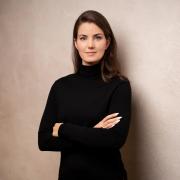Oriana Diessel
Oriana earned her Ph.D. in 2023 from the Max-Planck-Institute of Quantum Optics in Germany under the supervision of Richard Schmidt. Her research focused on quantum many-body physics, specializing in systems with mobile impurities (polarons) in ultracold atoms and transition metal dichalcogenides (TMDs), and on driven-dissipative systems, utilizing field theoretical and variational techniques.
In her doctoral thesis, she explored the physics of polarons and phase transitions in light-matter systems. Her work includes developing a theoretical framework for Raman spectroscopy protocols in ultracold atoms with quantum impurities. Additionally, she investigated interactions among impurities, shedding light on their role in the spectrum of many-body physics. The second part of her thesis focuses on light-matter systems. She discovered that driven-dissipative Bose gases, under a quadratic drive, exhibit a phase diagram different from their equilibrium counterparts. This novel phase exhibits a disordered state with correlation featuring KPZ-like scaling. Her thesis also includes a comprehensive study of long-range interacting systems, exploring how these interactions modify the low-energy excitation spectrum.
Before pursuing her Ph.D., Oriana obtained her M.Sc. in Physics at the University of Cologne in 2019. During this period, she focused on studying many-body instabilities in Moiré flatband systems using the functional renormalization group.
As of September 2023, she has been an ITAMP fellow, exploring quantum impurity physics and collective behaviour in driven-dissipative light-matter systems. Recently, she got also interested in the dynamics of first-order phase transitions.


